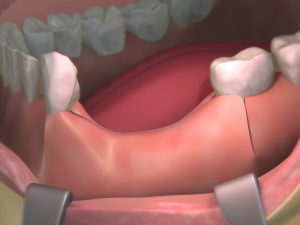With a short answer: no. However, with some therapy, it may be possible. You cannot simply undergo an advanced implant-supported tooth replacement plan while struggling with periodontal disease. In order to successfully implant a replacement tooth, you will need to have excellent oral health. To ensure that the dental implant is safe, you should work closely with your dentist to improve your oral health before implementing a tooth replacement plan.
replacement plan while struggling with periodontal disease. In order to successfully implant a replacement tooth, you will need to have excellent oral health. To ensure that the dental implant is safe, you should work closely with your dentist to improve your oral health before implementing a tooth replacement plan.
In order to increase your chance of a successful implant, you will need to establish a personalized plan with your dentist to ensure that your soft gum tissue heals so that it can provide proper support as your dental implant fuses with your jawbone. In this post we will discuss some ways that you and your dentist may work together to improve your chances for successful dental implant placement for people who currently struggle with periodontal disease.
Preparatory Treatments
Prior to beginning a dental implant procedure for a patient who struggles with periodontal disease, we will need to provide preparatory treatments to make sure that your soft gum tissue is healthy enough to undergo the implant procedure. We can work with you to improve your gum health, however, it may be the case that your gum tissue has experienced severe recession. In this case, a tissue graft may be necessary. Preparatory treatments may be different from person to person. Whichever procedures you need specifically, your dentist will help you devise that plan.
Once You Receive Your Implant
Eventually, you and your dentist may be able to succeed in restoring your gum health to a place where it can successfully support an implant. Once your implant is in place, though, you may also need additional periodontal maintenance. You should visit your dentist regularly, at least every six months. You should also maximize your regular dental routines at home. You can drastically improve your chances of maintaining a successful implant by working closely with your dentist as well as improving your oral routine at home.
If you have any other questions regarding a dental implant for people who currently struggle with periodontal disease, please give us a call today.